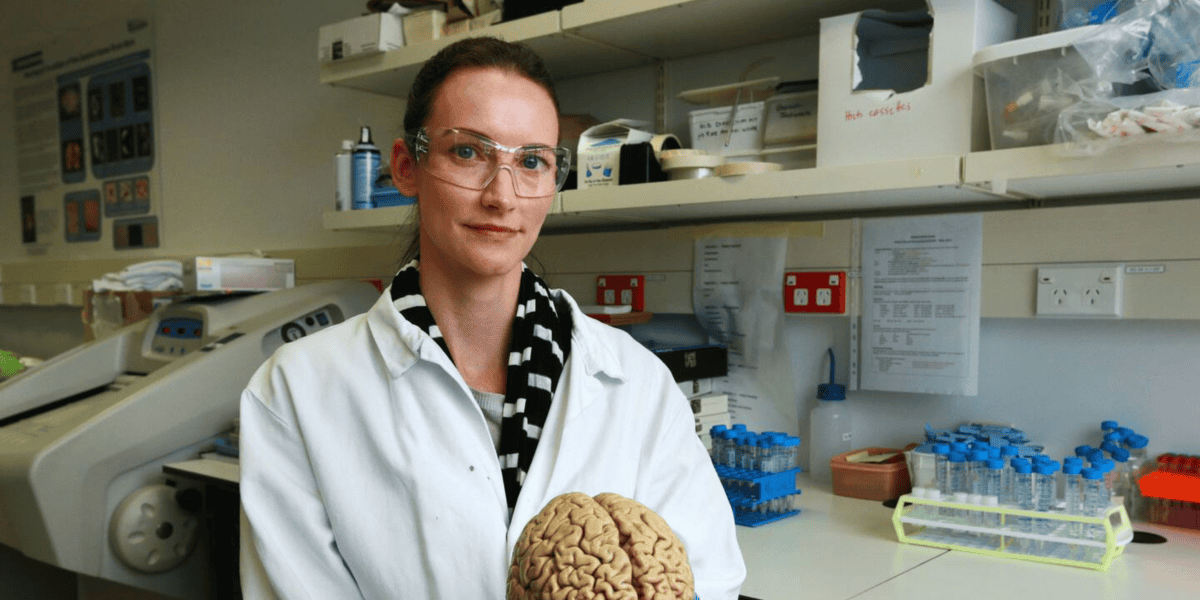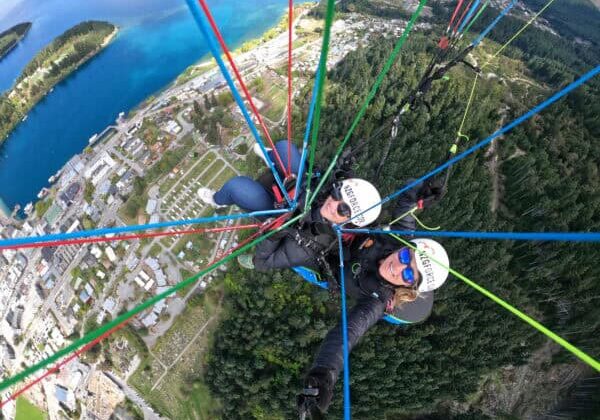Dr Emma Scotter: MNZM for services to MND
Advocacy, Research
3 June 2024

We are thrilled Dr Emma Scotter has been appointed a Member of the New Zealand Order of Merit for outstanding services to motor neurone disease (MND) research, as part of today’s Kings Birthday Honours.
We are immensely very grateful to Dr Scotter for her unwavering passion to tackle MND with new approaches and insights, for greatly contributing to our collective understanding of the disease, and for being an incredible advocate for the MND cause.
Motor neurone disease (MND) is an aggressive and terminal neurological disease that progressively takes away a person’s ability to walk, talk, feed themselves, swallow, and ultimately breathe. There are around 400 people with MND at any given time across Aotearoa New Zealand, with three people diagnosed each week. The incidence of MND in New Zealand is higher than the international average, although it is not known why. Currently there is no truly effective treatment and no cure, and the average life expectancy is between three to five years from diagnosis. There are large gaps in our understanding of the disease and consequently an urgent need for research to identify treatments for this fatal condition.
MND NZ provides support and advocacy to people living with MND, their carers, families, whānau, and health professionals. Vitally, MND NZ also helps fund various New Zealand based research, including the NZ Genetics Study, NZ MND Research Network, run by Dr Emma Scotter and her team, as well as the NZ MND Patient Registry.
Dr Scotter’s primary work has focused on the cellular biology and the fundamental processes involved in MND, especially the key abnormal protein in MND (TDP-43). She and her team have approached this from multiple different angles using a number of different techniques. These include individual participant genetic analysis, exome wide variant analysis, proteomics, inflammatory pathways, transcriptomics, and neuropathological studies. Most recently Dr Scotter and her team have developed a “disease in a dish” model, which enables brain tissue to be grown from a skin biopsy. This cultured tissue has all the individual features of the person’s disease and enables a wide range of techniques to be applied for further study and the development of therapies. Some of these techniques have also enabled study of related neurodegenerative diseases, including Huntington’s and Alzheimer’s.
Through her lab Dr Scotter is also building laboratory research capacity for MND in New Zealand. She is attracting and building a cohort of energetic, inspired researchers whom she encourages to tackle MND with new approaches and insights. As might be apparent from the breadth of her scientific work, Dr Scotter has forged strong research and professional links with the international MND research effort.
She has been a key contributor to several Australasian and international projects, and her contacts and connections have served to link New Zealand into the global research effort. Dr Scotter enthusiastically supports research outside of her primary focus and has contributed to our knowledge of the epidemiology of MND. She is unfailingly encouraging to anyone interested in MND research of any sort. She has contributed her energy to attempts to bring therapeutic drug trials for MND to New Zealand. The possibility of treatment is clearly a major source of hope for people struggling with this difficult disease.
This broad approach reflects her belief that all research must keep the people living with MND and their whānau at its heart.
As a result, Dr Scotter’s research has had a significant impact on the MND community, including people living with MND, clinicians, and other researchers in New Zealand. The NZ MND Genetics Study, by giving back and explaining genetic results, empowers participants and their whānau to make better informed health decisions. Participants that don’t have the MND causing gene mutation are reassured that there isn’t a greater likelihood of a close family member developing MND, while all at-risk relatives of participants with the MND causing mutation are connected to genetic counselling and testing. In one case, this enabled pre-implantation genetic testing so that the grandchild of a participant with MND could be born without the MND causing gene mutation.
Generally, research studies do not inform participants of the findings, due to cost and required standards of evidence. The NZ MND Genetics Study funds and coordinates diagnostic-grade retesting of all results indicating MND gene mutation and provides genetic counselling. In addition, this study enables access to genetic testing for those not eligible through the public health service. Genetic therapies are becoming available for certain mutations. Dr Scotter is a keen advocate for access to these therapies and has personally advocated for individuals’ access to treatment on more than one occasion.
The options and opportunities the NZ MND Genetics Study provides serve to broaden clinical practice, with clinicians feeling more confident in discussing genetic testing with patients and requesting specific tests.
To help encourage and support MND research, Dr Scotter established the NZ MND Research Network in 2017. This has connected and facilitated interaction between MND researchers in New Zealand, as well as raised public awareness of New Zealand based MND research. Partly because of this initiative there is more energy in the MND clinical and research space than ever before.
Thank you, Dr Scotter, and congratulations on your appointment as Member of the New Zealand Order of Merit.


